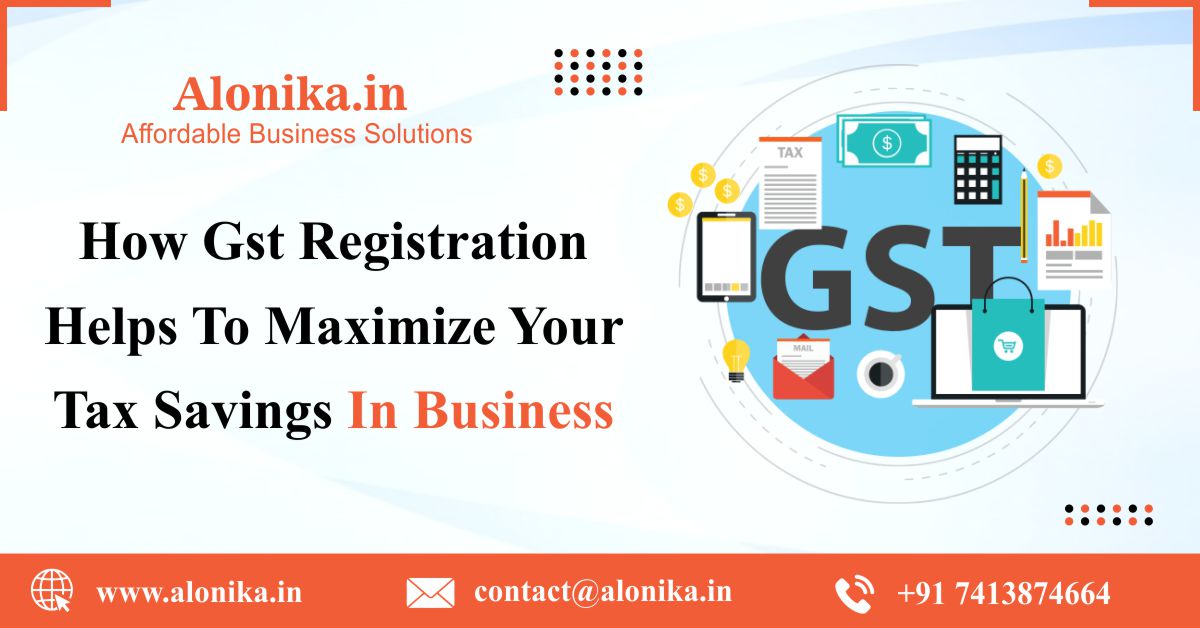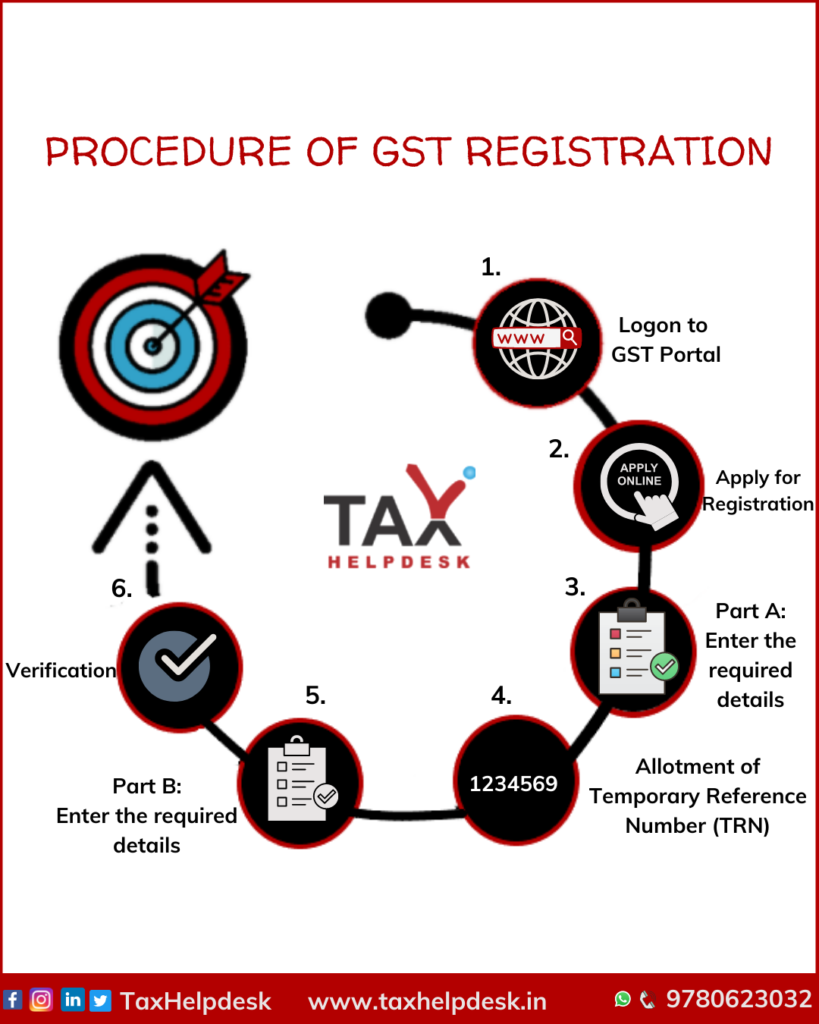Step-by-Step Process for Singapore GST Registration Explained
Step-by-Step Process for Singapore GST Registration Explained
Blog Article
Browsing the Complexities of GST Enrollment: Expert Tips and Best Practices for Smoother Compliance
Navigating the complex landscape of Goods and Solutions Tax Obligation (GST) registration demands a keen understanding of the progressing governing framework and precise attention to information. As businesses make every effort to guarantee compliance and avoid challenges, specialist support and ideal techniques can act as invaluable compass points in this complicated surface. From decoding enrollment requirements to using technical tools for streamlined processes, the trip towards smoother GST compliance is complex and nuanced. Keep tuned to uncover essential strategies and understandings that can aid services guide via the intricacies of GST registration with skill and self-confidence.
Recognizing GST Enrollment Demands

Along with turnover limits, businesses participating in interstate sales or providing taxable services might likewise be needed to sign up for GST, also if their turn over is below the prescribed limit (Singapore GST Registration). Comprehending these needs and limits is vital to stay clear of penalties and make certain smooth operations within the legal framework
Furthermore, companies have to gather and prepare the essential documentation, such as proof of identity, address, business incorporation, and savings account information, prior to starting the GST registration procedure. Falling short to offer exact information or fulfill the enrollment target dates can lead to fines or other legal consequences. For that reason, businesses need to stay educated about the particular GST registration needs appropriate to their procedures to keep compliance and prevent prospective concerns.
Organizing Crucial Documentation
Companies starting the GST registration process need to carefully put together and organize the important documents required for submission. The essential papers usually needed for GST registration consist of proof of business enrollment or address, identity and consolidation proofs of business proprietors or companions, checking account information, evidence of primary location of company, and permission kinds. Ensuring that these documents are easily offered and arranged can improve the enrollment procedure and prevent hold-ups or beings rejected.
To efficiently arrange necessary documentation, services must create a centralized system for saving and categorizing the needed documentation (Singapore GST Registration). Making use of electronic storage services can help keep very easy gain access to and ensure that documents are safely saved. Additionally, establishing a list of all required papers can function as a handy device to track what has been collected and what is still needed for entry

Leveraging Innovation for Efficiency
Enhancing operational effectiveness through technological combination is vital for contemporary services navigating the complexities of GST registration. Leveraging innovation can streamline processes, minimize errors, and ensure timely compliance with GST policies. Among the essential ways technology can aid in GST enrollment try these out is with the usage of automated software application services. These tools can assist companies track sales, generate invoices, calculate tax obligations, and submit returns accurately. By automating these jobs, companies can minimize hands-on errors and conserve time that would or else be invested in recurring management job.
Additionally, technology can promote smooth interaction with tax obligation authorities. On-line websites and communication tools allow organizations to submit records, fix inquiries, and get updates in a more effective way. This not only accelerates the enrollment process yet likewise helps in maintaining trusted and clear communication with the relevant authorities.
Furthermore, cloud-based storage space solutions supply a safe system for organizations to store and gain access to their economic data, making certain compliance with GST record-keeping demands. By streamlining information storage space and automating procedures, businesses can improve their general effectiveness and accuracy in GST enrollment procedures.
Proactive Conformity Surveillance

To make sure efficient positive conformity surveillance, businesses must establish robust internal controls, conduct routine audits, and take advantage of automation tools for real-time tracking of GST transactions. Regular training sessions for staff members on GST compliance demands can additionally assist in developing a culture of conformity within the company. In addition, engaging with tax obligation experts or professionals can give valuable insights and assistance on navigating complex GST laws.
Involving With Specialist Consultants
Involving skilled tax obligation experts can substantially strengthen a company's understanding and compliance with complex GST guidelines. Professional experts bring a wealth of knowledge and experience to the table, assisting businesses browse the intricacies of GST registration with ease. By leveraging their competence, companies can ensure precise filings, lessen the danger of mistakes, and stay current with the current regulative you can try these out changes.
When involving with professional professionals, it is important to choose specialists with a strong performance history in GST conformity (Singapore GST Registration). Try to find experts who have a deep understanding of the relevant legislations and policies, along with experience dealing with companies in your sector. Efficient communication is essential in this partnership, so make certain to plainly specify your expectations and establish regular touchpoints to talk about development and deal with any kind of worries
Additionally, professional professionals can give valuable insights and guidance on optimizing your tax obligation strategy, recognizing prospective cost-saving chances, and simplifying your conformity procedures. On the whole, buying specialist consultancy services can go a long way in ensuring smoother GST conformity and preventing expensive blunders.
Final Thought
To conclude, browsing the intricacies of GST registration calls for a thorough understanding of visit their website the demands, organization of necessary documentation, leveraging technology for effectiveness, aggressive conformity tracking, and engagement with professional specialists. By adhering to these finest techniques, organizations can ensure smoother compliance with GST laws and prevent prospective fines or fines. It is vital to remain informed, proactive, and diligent in managing GST enrollment to preserve compliance and maintain financial integrity.
To ensure compliance with tax policies, services need to extensively recognize the detailed demands for GST registration. Product and Services Tax Obligation (GST) is a value-added tax levied on the majority of products and services in a country, making it important for organizations to sign up for GST to avoid legal effects.Additionally, services must collect and prepare the necessary paperwork, such as proof of identification, address, service unification, and financial institution account details, before initiating the GST enrollment process. Services need to stay informed about the details GST registration needs appropriate to their procedures to maintain compliance and prevent possible concerns.
The crucial records normally required for GST registration consist of proof of company registration or consolidation, address and identification evidence of the service owners or companions, bank account information, evidence of major place of organization, and authorization kinds.
Report this page